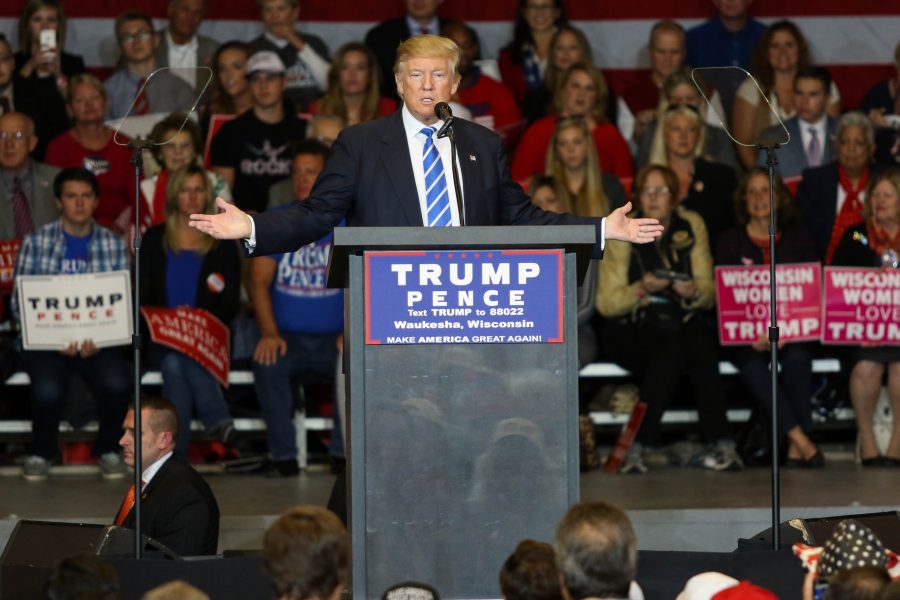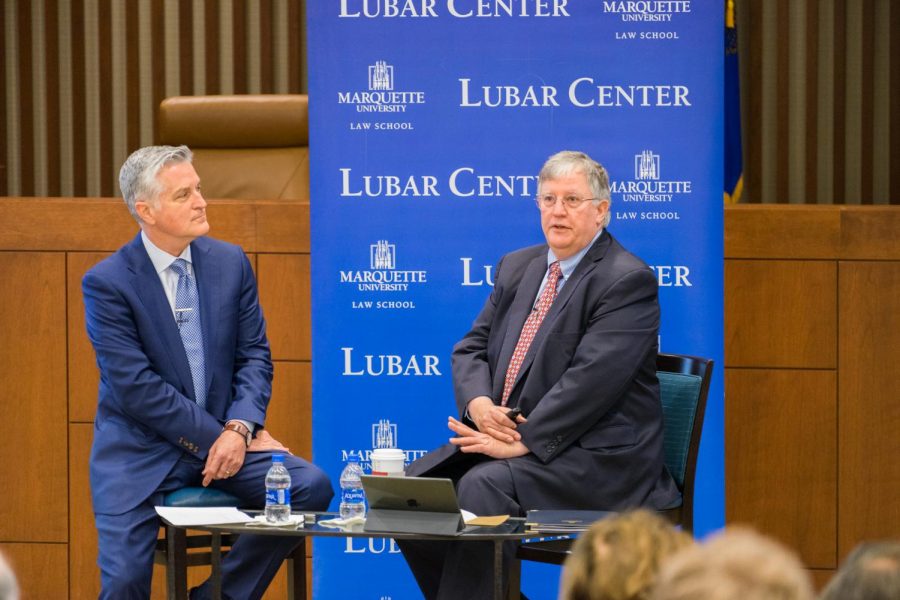
After the Cold War, U.S. presidents tried to paint a picture perfect world, free from fear of nuclear wars and attacks.
Ronald Reagan first began this movement by working to reduce America’s and Russia’s nuclear arsenals — which, unfortunately, didn’t fly.
Bill Clinton kept the talk going. George W. Bush began work during the beginning of his term, but other distractions like major wars pushed thoughts of nuclear reduction to the back burner.
Now, President Barack Obama has set his sights on this noble ambition, and it’s proving successful.
The Obama administration is hosting a two-day nuclear security summit, which ends today at the nation’s capitol — a commendable stride on the president’s part.
The gathering’s primary purpose is to prevent the spread of nuclear weapons and technology, as well as to keep weapons out of the hands of terrorists.
To the analytical eye, even as the president makes giant leaps for a new world order defined by peace and mutual respect, he’s guarding America’s status as a global superpower.
Obama has made major strides in reducing nuclear weapons, especially in comparison to previous presidents, but many people don’t acknowledge it.
Many often label Obama as a weak ideologist in his foreign policy decisions.
But when it comes down to it, as displayed in this nuclear summit and most of his foreign policy work, Obama is every bit of a realist. He just goes about it in a more skillful and less noisy way.
Obama also met with Russian President Dmitry Medvedev in Prague last Thursday to sign a new Strategic Arms Reduction Treaty.
The treaty will cut the number of long-range warheads possessed by the Russia and the United States by roughly 30 percent.
Russia is the only country that can match America’s nuclear prowess.
So although Obama wanted to depict America as an exemplary leader, he was also committed not to fall behind America’s closest nuclear competitor.
Also, last week, Obama played a rare political card, trading ambiguity on the usage of nuclear weapons for seeming candor.
In the president’s new Nuclear Posture Review, Obama professed that “preventing nuclear proliferation and nuclear terrorism” was the nation’s No. 1 strategic priority.
The president didn’t just stop there. Obama made a unique pledge not to use nuclear weapons as retaliation against states in compliance with the Non-Proliferation Treaty.
And while Obama displayed such strong actions, critics still considered his foreign policy tactics weak.
Former Alaskan governor and now full-time professional political celebrity Sarah Palin had something negative to say, of course, saying Obama’s stances are “unbelievable.”
And the right of the political spectrum riled up in forced shock, lashing out at the president for making the country “weaker.”
One can’t expect any less. It’s become habitual for the right to simply take a counter stance on anything Obama does.
The most vocal arch-conservatives now make frantic efforts to distance themselves from whatever the president does, even when right.
By making an assurance to treaty states, Obama gains their ears and warms their hearts. This by no means makes America weaker, but actually boasts America’s soft power without losing anything.
Obama’s attitude of global engagement and suave but direct rhetoric has solidified him on the global politics stage as an admirable dazzler.
Finally, it is no coincidence that the summit being held in D.C. happens to be before the United Nations global conference to review the Nuclear Proliferation Treaty (the overriding global agreement to slow the spread of nuclear weapons).
While the president’s actions portray the United States as a nation that’s willing to live up to the expectation it demands from other nations, he’s careful not to upset the balances of America’s power.
Food For Thought: Toss a pebble in a pond first. Just because you can see the bottom doesn’t make it shallow.






